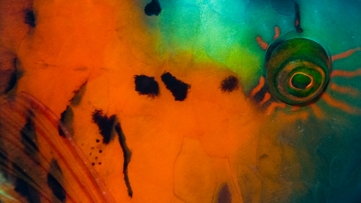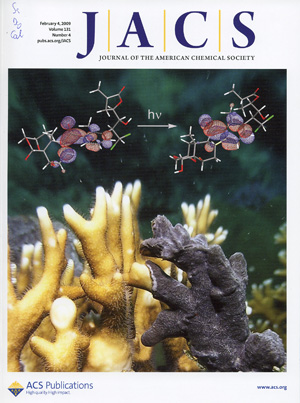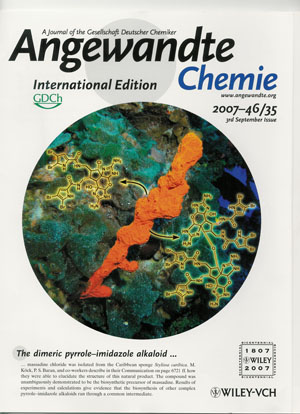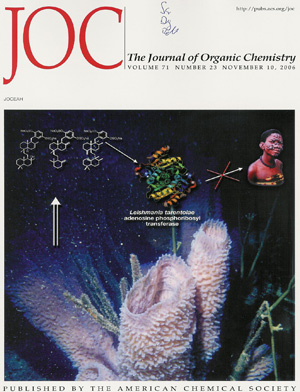
| Home |
| Colors of the Reef |
| Search the Reef |
| Science and the Reef |
| Equipment |
| New |
| Links |
| Contact |
| Interna |
Sponges and Chemistry - from Toxins to Drugs
Chemistry plays a vital role for marine organisms for communication, defense, and hunting. Communication can occur via color signals - in most cases induced by chemical processes in the skin of fish, mollusks and other animals - or by releasing chemical compounds into the water which can be sensed by other species. Chemical defense is of importance especially for species that don't move, or only very slowly move like corals or sponges. Many of these animals developed highly potent toxins that can rapidly immobilize or kill predators or prey. A nice example is the toxic Caribbean sponge Neofibularia nolitangere with the common name "Touch-Me-Not-Sponge". If touched with bare skin it might cause burning (sometimes with a delay of hours), reddened skin, swelling, and blisters. In this sponge steroids and other compounds have been discovered which might be useful for medical use.
The chemistry of marine natural products is a fascinating topic. Sometimes small molecules are involved, sometimes complex mixtures of proteins. Many of these biologically active compounds are of potential use as drugs or as lead structures for the development of drugs. A problem is that these compounds can only be isolated in small amounts from the organisms and that many of these organisms are rare or difficult to harvest. However, in many cases these problems can be solved by chemical synthesis or by biotechnology modifying microorganisms to produce the chemicals. In a number of cases the compounds are produced by microorganisms living in invertebrates or higher organisms anyway. The Pink Vase Sponge and other sponges can consist of more than half of their body mass from various types of bacteria (source: ScienceDaily 7 September 2007)!
The important step is to identify and characterize the biologically active compounds. For more reading on the general topic look here: E. Marris, Nature 443 (2006) 905.
Here, you can have a look on a couple of original research papers in this field I find interesting. Just click on the cover pages of the journals.
|
|
 Sponge toxins - Nakiterpiosin against leukemia? Sponge toxins - Nakiterpiosin against leukemia? |



